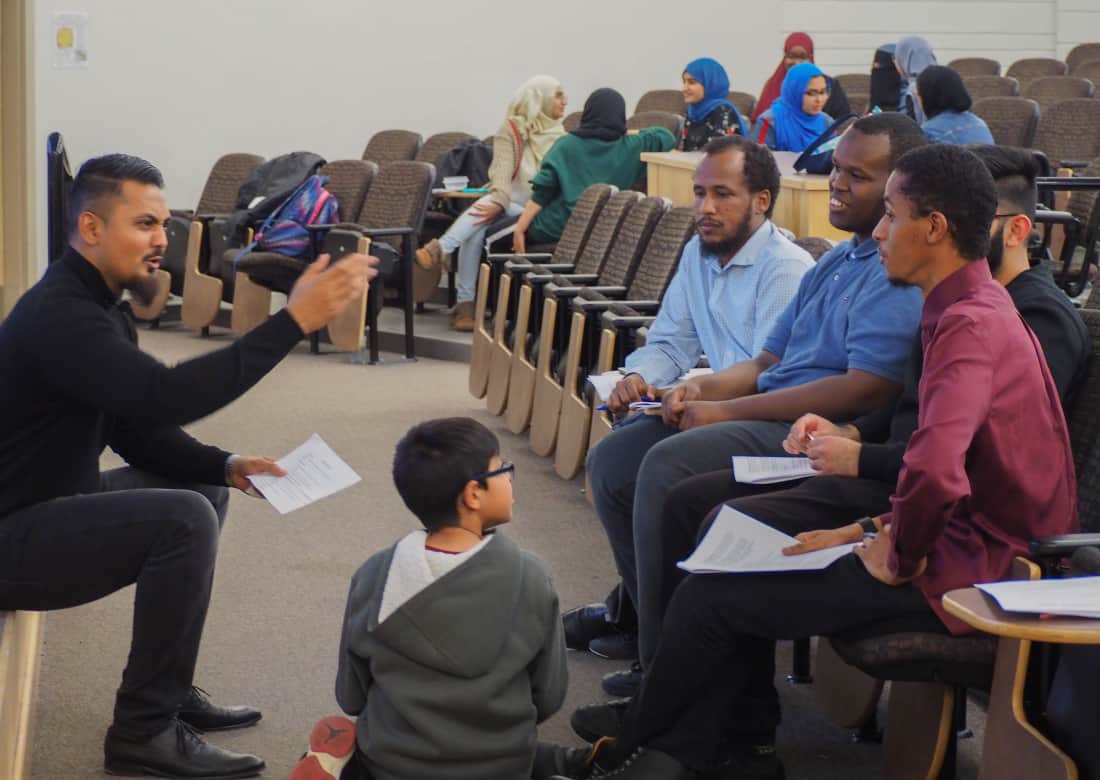
Since the War on Terror’s inception, Muslim and Islamic portrayals have been more present in the media, and with them came Islamophobic narratives.
British journalist Dilly Hussain visited the U of S on Sept. 25 for an interactive workshop titled “Muslims in the Media.” Hosted by the Muslim Students’ Association and Nation of Young Muslims Ink, the event was to help students understand the systemic and co-ordinated issue of Islamophobia in the media and how to responsibly engage with it in the current political climate.
Hussain, deputy editor for an independently regulated Muslim news site called 5Pillars, stressed the importance of Muslim’s engagement in the media in order to change the narrative.
“You can try and live your life pretending that what is happening in the mainstream press is not affecting you and your faith but it really is,” Hussain said. “So why should it be the case that [everyone] is talking about Islam and Muslims except for Muslims themselves.”
Hussain’s workshop specifically catered to Muslim students to equip them with the tools to engage with the media. His take home message was that if Muslims do not learn about the media and its strategies, then they have no right to complain when the media distorts Islamic identity and perception.
Second-year computer science student Ammara Syeda attended the workshop. She says the event was helpful to learn about the tokenization of Muslim women in the media, which is often framed as representation.
“Being a [visible] Muslim woman myself, it’s sometimes hard for us to know when an opportunity is given to us because we look a certain way or because our opinions are actually being valued,” Syeda said.
Hussain is worried over the future of Muslims if current Muslim portrayal in the media, heightened since 9/11, persists.
“We have already had Christchurch, [you’ve] already had the mosque shooting in Quebec, we have already had incidents like these happening,” Hussain said. “So, God forbid that the media carries on portraying Islam and Muslims in the way that it has been for the last 19 years, that we will unfortunately see discriminatory attacks against Muslims and our places of worship.”
Hussain says that 9/11 and the ensuing War on Terror has dominated media coverage of Muslim communities for years, and this context is important to understand news about Muslims and Islam in the present.
“The general masses have been given a particular stereotype and depiction and caricature of what a Muslim is.” Hussain said, “Therefore, anything that appears foreign or looks foreign or seems as if it cannot be understood is seen as a threat and therefore leads to suspicion.”
On a broader scope, Hussain stressed the importance of following Qur’anic values when it comes to journalism and beyond in taking a stand against injustice.
“My non-Muslim teachers always told me when I was doing my master’s in journalism that we should always try and remain partial and objective. The way I see it is there are some things in life in which you cannot remain impartial,” Hussain said. “In cases of clear injustice and oppression, you cannot sit on the fence.”
Fiza Baloch, a second-year computer science student, felt inspired by the workshop and hopes to include what she learned in her future writing.
“As a writer, I think that it changed my perspective on how I can portray these events, and as a student it showed me that it’s not a bad thing to pursue something like writing if it’s for the good of the collective,” Baloch said.
Hussain urged students to participate in media processes and journalism at large.
“Doctors and surgeons may save a life a day, but it is writers and thinkers that change societies; this is the kind of profession that changes minds,” Hussain said.
—
Wardah Anwar
Photo: Rida Pervaiz
Leave a Reply